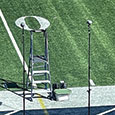When high school band directors select music, they do more than choose pieces to play on programs. They define their curriculums. The kinds and quality of music students study, perform, and listen to profoundly affects and influences what they grow up to like and consume, the same way that “you are what you eat” holds true. If the goal of music education is to help students understand and appreciate music as an expressive art, band directors must select and use interesting, imaginative, and expressive music in a variety of genres. Zoltán Kodály, one of the 20th century’s important composers and music educators, stated that children should be taught with only the most musically valuable materials. “For the young, only the best is good enough. They should be led to masterpieces by means of masterpieces.”
There is a direct link between the quality of the music young people experience and the development of their musical values and appreciation. If students study, perform, and consume high-quality music, the potential for developing an appreciation for music of great quality is much greater than if they study, perform and consume junk-food-quality music. Teachers who teach English literature select works by the best authors – such as Shakespeare, Dickens, Faulkner, and Twain – for their students to read. Likewise, high school band directors should select literature composed by the best creators of music, from J. S. Bach to John Williams.
Guidelines for Selecting Music
Select music that is interesting and imaginative in the development of some or all of its musical elements. The music should provide opportunities for the teaching of musical concepts such as form/construction or style.
As much as possible, pieces should have interesting individual parts. Students like to play pieces that allow them to be part of the action. Tubists like to play melodies as well as bass lines, and horn players like to play more than offbeats. Choose music that will help each student grow musically and technically.
Select music that fits the instrumentation of the ensemble. However, if a teacher wants to perform an excellent work but the ensemble is missing a couple essential instruments, as long as a reasonable substitution is available the work should still be considered.
Select pieces in which the elements of music are integrated and developed creatively and have the potential for evoking feelings and conveying expressive meaning to the students.
Avoid selecting pieces in which the technical demands are excessive. This creates a need to drill the notes and leaves little time for collaborative music-making. Expressiveness should peak during the concert.
Select pieces that encompass a variety of styles – contemporary, avant-garde, Renaissance, Baroque, Romantic, jazz, and popular. Variety makes the teaching of history and musical styles possible.
Select pieces that have a variety of textures ranging from thinly scored passages (solo and small group instrumentation) to those scored for the full ensemble.
Appropriate Decisions
Although selecting high-quality music is of utmost concern, it is also important that the pieces be appropriate for the skill level of the students and for the environments in which they are to be performed. I consider Ralph Vaughan Williams’s Toccata Marziale to be of greater artistic merit than Take Me Out to the Ball Game. However, the latter is a much better choice to perform at a baseball game. The performance of a piece, even an excellent one, in an inappropriate environment will not increase a player’s or listener’s appreciation of the music.
Among the pieces selected, some should be familiar and comfortable and others should be new works that challenge students. Almost all pieces provide opportunities for students to develop technical skills and musical knowledge. However, only the study and performance of excellent quality music can provide opportunities for students to discover and feel the expressive power of music.
Below is a selective list of high-quality works for high school band. The study and performance of any of them will help students develop and expand their technical and expressive music-making skills as well as increase their knowledge, understanding and appreciation of music.
Grade 4
An American Elegy by Frank Ticheli (Manhattan Beach)
Chorale and Alleluia by Howard Hanson (Carl Fischer)
Chorale and Shaker Dance by John Zdechlick (Kjos)
Elegy for a Young American by Ron LoPresti (Theodore Presser)
Elsa’s Procession to the Cathedral by Richard Wagner, arranged by Lucien Cailliet (Alfred)
English Folk Song Suite by Ralph Vaughan Williams (Boosey & Hawkes)
Fantasia in G Major by J.S. Bach, arranged by Richard Franko Goldman and Robert L. Liest (Theodore Presser)
First Suite in Eb by Gustav Holst (Boosey & Hawkes)
Irish Tune from County Derry by Percy Grainger (Carl Fischer)
Komm, Süsser Tod by J.S. Bach, arranged by Alfred Reed (Barnhouse)
A Movement for Rosa by Mark Camphouse (TRN)
O Magnum Mysterium by Morten Lauridsen, arranged by H. Robert Reynolds (Peer)
Old Home Days by Charles Ives, arranged by Jonathan Elkus (Peer)
Pageant by Vincent Persichetti (Carl Fischer)
Prelude, Siciliano and Rondo by Malcolm Aronld, arranged by John Paynter (Carl Fischer)
Rest by Frank Ticheli (Manhattan Beach)
Second Suite in F by Gustav Holst (Boosey & Hawkes)
Sheltering Sky by John Mackey (Osti Music)
Shepherd’s Hey by Percy Grainger (Carl Fischer)
Sleep by Eric Whitacre (Walton Music)
Trauermusik by Richard Wagner, arranged by Michael Votta (Ludwig)
Variations on a Korean Folk Song by John Barnes Chance (Boosey & Hawkes)
William Byrd Suite by Gordon Jacob (Boosey & Hawkes)
Ye Banks and Braes O’ Bonnie Doon by Percy Grainger (Hal Leonard)
Grade 5
Armenian Dances by Alfred Reed (Alfred)
Ballad for Band by Morton Gould (Chappell)
Blue Shades by Frank Ticheli (Manhattan Beach)
Canzona by Peter Mennin (Carl Fischer)
Colonial Song by Percy Grainger (Carl Fischer)
Divertimento for Band by Vincent Persichetti (Theodore Presser)
Ecstatic Waters by Steven Bryant (Steven Bryant)
Fanfare and Allegro by Clifton Williams (Alfred)
Fantasies on a Theme by Haydn by Norman Dello Joio (Marks)
Fiesta del Pacifico by Roger Nixon (Boosey & Hawkes)
Four Scottish Dances by Malcolm Arnold (Carl Fischer)
George Washington Bridge by William Schuman (G. Schirmer)
La Fiesta Mexicana by H. Owen Reed (Belwin)
Music from the Royal Fireworks by G.F. Handel, arranged by Charles MacKerras
New England Tryptich by William Schuman (Theodore Presser)
Overture for Band by Felix Meldelssohn, arranged by John Boyd (Ludwig)
Overture to “Candide” by Leonard Bernstein, arranged by Clare Grundman (Boosey & Hawkes)
Postcard by Frank Ticheli (Manhattan Beach)
Red Line Tango by John Mackey (Osti Music)
Sketches on a Tudor Psalm by Fisher Tull (Boosey & Hawkes)
A Solemn Music by Virgil Thomson (G. Schirmer)
Suite Francaise by Darius Milhaud (MCA)
Suite of Old American Dances by Robert Russell Bennett (Chappell)
Symphony No. 6 for Band by Vincent Persichetti (Elkan-Vogel)
Toccata Marziale by Ralph Vaughan Williams (Boosey & Hawkes)
Variants on a Medieval Tune by Norman Dello Joio (Marks)
Variations on “America” by Charles Ives, orchestrated by William Schuman, arranged by William E. Rhoads (Merion/Theodore Presser)
Grade 6
…and the mountains rising nowhere by Joseph Schwantner (European-American)
The Apotheosis of this Earth by Karel Husa (G. Schirmer)
Concerto for Wind Ensemble by Karel Husa (G. Schirmer)
Dionysiaques, Op. 62 by Florent Schmitt (Editions Robert Martin)
Emblems by Aaron Copland (Boosey & Hawkes)
Festive Overture by Dmitri Shostakovich, arranged by Donald Hunsberger (G. Schirmer)
Hammersmith by Gustav Holst (Boosey & Hawkes)
The Leaves are Falling by Warren Benson (Hal Leonard)
Lincolnshire Posy by Percy Grainger (Ludwig)
Music for Prague, 1968 by Karel Husa (Associated Music Publishers)
The Passing Bell by Warren Benson (Hal Leonard)
Sinfonietta by Ingolf Dahl (Tetra/ Continuo Music Corp.)
Symphony in Bb by Paul Hindemith (Associated Music Publishers)
Symphony No. 3 by Vittorio Giannini (Belwin Classic Band)
Symphony No. 4 by David Maslanka (Carl Fischer)
Symphony No. 4 “West Point” by Morton Gould (G. Schirmer)
Theme and Variations, Op. 43a by Arnold Schoenberg (G. Schirmer)
Three City Blocks by John Harbison (G. Schirmer)
Vientos y Tangos by Michael Gan-dolfini (Boosey & Hawkes)
Winds of Nagual by Michael Colgrass (Carl Fischer)
The works band directors select and purchase affect which works are published. If band directors purchase high-quality pieces, publishers will publish high-quality pieces. If they purchase junk-food-quality music, this is what publishers will offer. Publishers are business people; they publish what sells. Publishing music that fails to sell is bad business.
In a world of popular entertainment, computers, and electronic devices, young people can gradually lose touch with feelings and the emotional reserves they will need in life. The performance, study, and consuming of music of artistic merit can help ensure that young people do not lose touch with their human feelings.
Playing in a band should be enjoyable and fun experience for students. However it remains only enjoyable and fun unless they perform something worth performing. The study and performance of music of excellent quality can and will stimulate a student’s emotional and cognitive growth and appreciation and love of music.





